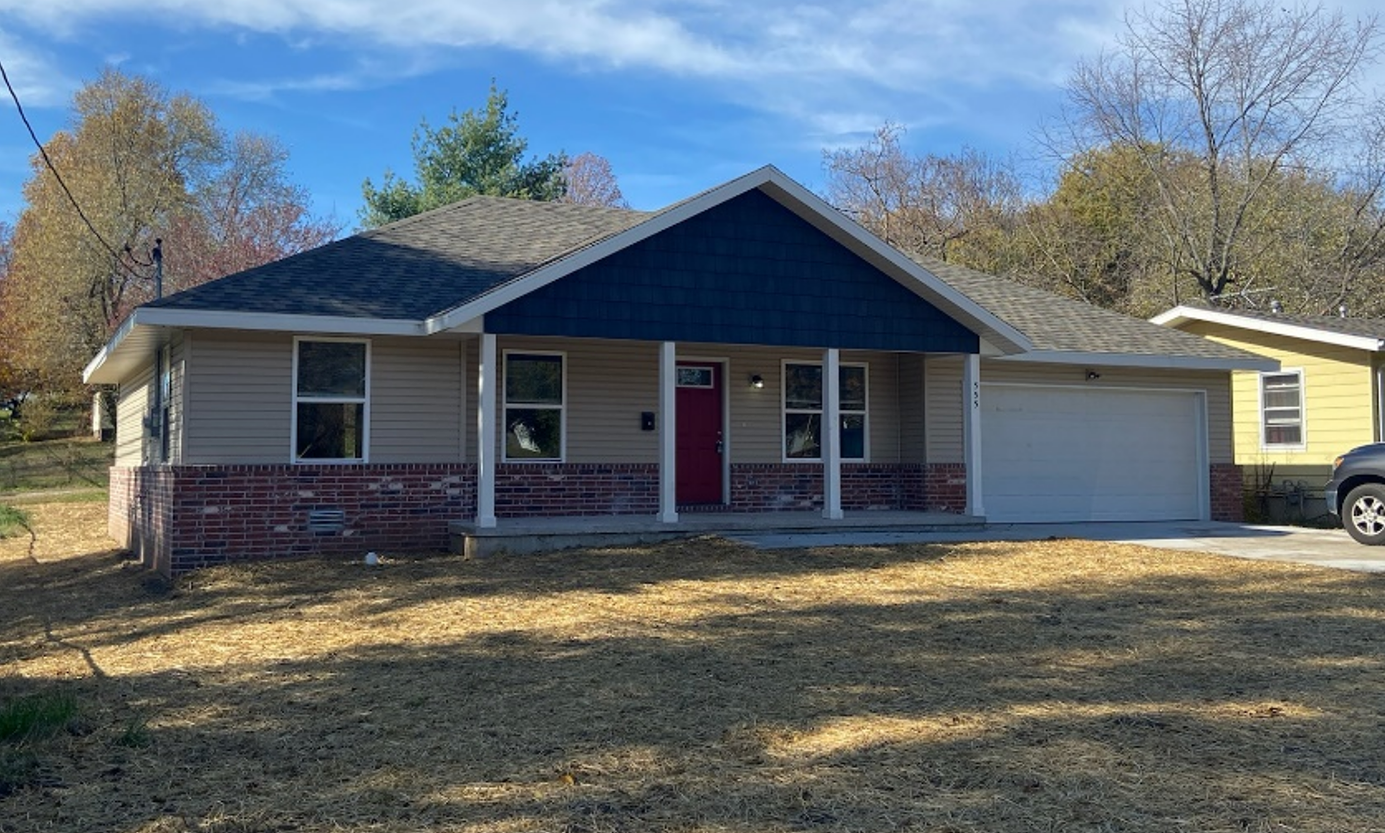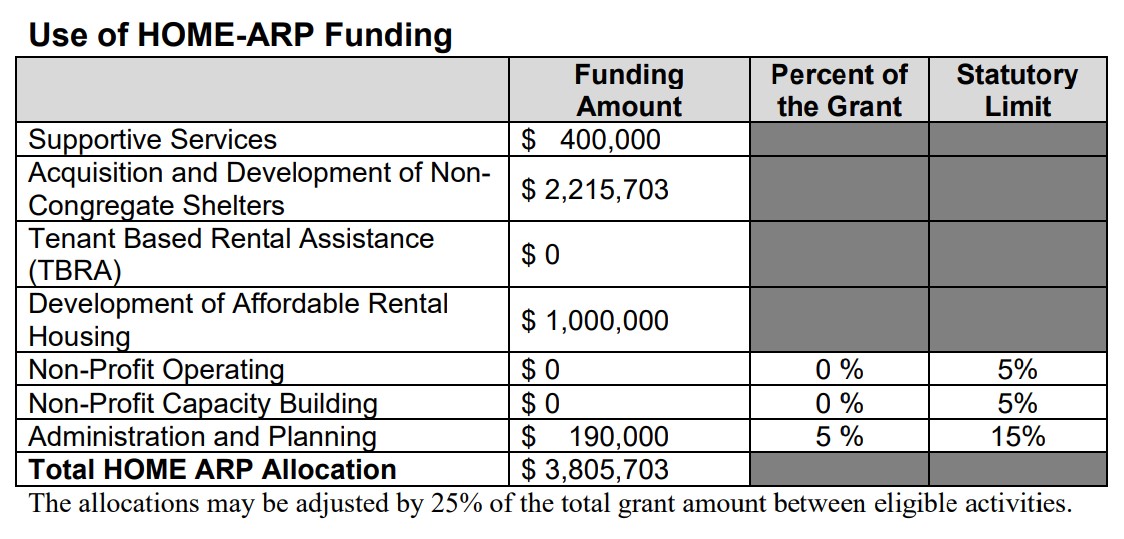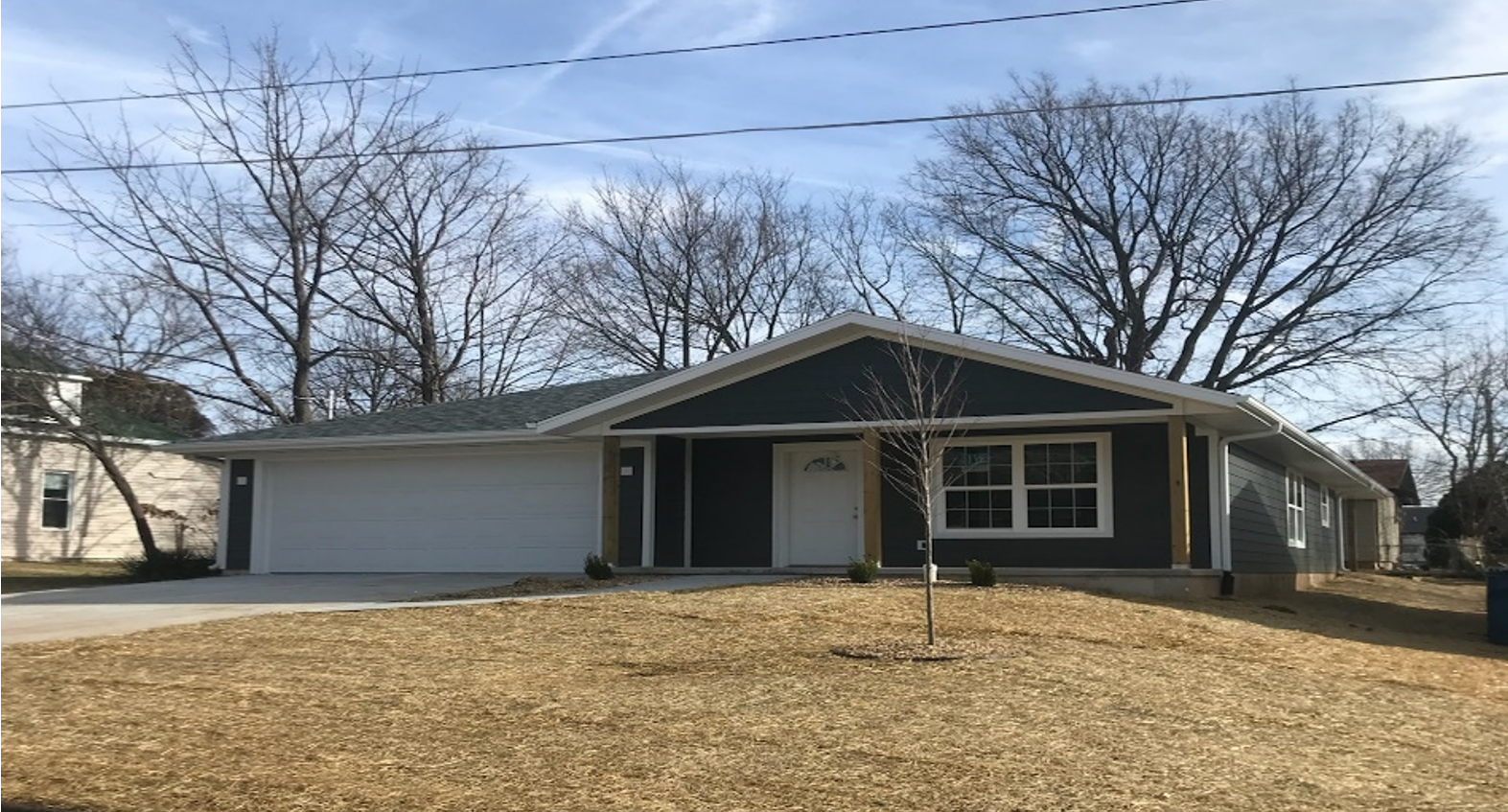The city of Springfield is looking to expand its availability of affordable housing rental units by enticing private developers with $1 million in HOME-ARP(A) grant funds.
Both nonprofit and for-profit entities will have the opportunity to apply for funding, with deadlines approaching early in 2023.
What is unique about HOME-ARP compared to other affordable housing grant and loan programs is the requirements it has for developers to provide low-income housing for certain populations, including those experiencing or at risk of homelessness.
“With the percentage of people that we have that are low-income, it’s absolutely essential that we provide high quality, affordable housing,” said Bob Atchley, Springfield’s senior city planner, in an interview with the Citizen
Springfield joins rest of the state in affordable housing shortage
Various sources show different figures for how many people are unsheltered in Springfield. Depending on which data you're looking at, there could be anywhere from 450 to 2,500 people that meet the U.S. Department of Housing and Urban Development’s definition of homelessness across the city.
Even with the continued efforts of organizations like Eden Village, which works to provide low-rent tiny homes for those who need them, the need for more affordable housing is clear.
The City of Springfield oversees over 400 affordable housing rental units, with a vacancy rate near zero.
As a whole, Missouri is short 119,353 affordable rental homes, according to the National Low Income Housing Coalition. The data further indicates that 68.3 percent of low-income renters are severely cost-burdened, and 26 percent of renter households are extremely low-income.
Additionally, only 43 affordable rental units are available for every 100 extremely low-income renter households in Missouri.
Developers that receive HOME-ARP grants must house certain populations
Any multi-family affordable rental housing unit that is built with HOME-ARP funding has to comply with HUD eligibility requirements. These requirements are meant to benefit qualified individuals and families in a certain number of their units, based on what percent of the total cost of the development the grant covered.
Qualified populations include those that are:
- Homeless
- At-risk of homelessness
- Fleeing, or attempting to flee, domestic violence, dating violence, sexual assault, stalking, or human trafficking
- In other populations where providing supportive services or assistance under section 212(a) of the Mckinney-Vento Homeless Assistance Act would prevent the family’s homelessness or would serve those with the greatest risk of housing instability
- Veterans and families that include a veteran family member that meet one of the preceding criteria
“With our normal home programs, we’re essentially providing housing for low-income families or low-income individuals, but with this program, we have to actually serve those qualified populations,” Atchley said.
Notably, however, these requirements are only applicable to multi-family developments. For single-family homes, developers will merely be required to rent to tenants that meet low-income criteria.

What is HOME-ARP?
HOME-ARP, otherwise known as HOME Investment Partnerships American Rescue Plan, is a $5 billion allocation to the HUD from ARPA.
It was created “to assist individuals or households who are homeless, at risk of homelessness, and other vulnerable populations by providing housing, rental assistance, supportive services, and non-congregate shelter, to reduce homelessness and increase housing stability across the country.”
Springfield was the first jurisdiction in the HUD Region 7 (Missouri, Kansas, Iowa, Nebraska) to receive HOME-ARP funding, according to Atchley, having received a total of $3,805,703.
The Notice of Funding Availability (NOFA) for the Affordable Rental Housing Grant Program is the first disbursement, at $1 million, of that funding.
The remaining ~$2.8 million will be spent on additional grants for the acquisition and development of non-congregate shelter, supportive services, and administration and planning, according to Atchley. While HOME-ARP allows them to utilize up to 15 percent for administration and planning, they have only allocated 5 percent.

“We wanted as much of this funding to go directly toward programs,” Atchley said.
Prior to assessing how the funding should be allocated, the city consulted a number of homeless service agencies and other nonprofit organizations that work with qualified populations.
In addition to funds received via a HOME-ARP grant, the city is also putting forward $1.5 million, to be made available in low-interest loans that developers can apply for and receive in addition to HOME-ARP funds for the same project.
“It’s really going to be best if it’s a developer that’s able to work in conjunction with a local nonprofit that can provide Continuum of Care grant funding or other grant sources to assist those tenants with paying the rent each month,” Atchley said.
Deadlines, assistance meeting approaching
The city anticipates grant commitments to be no more than 10, with limited funding available and the time frame before required paperwork is submitted. The grant funds are not expected to cover the entire cost of any proposed development.
Applicants must provide information on other funding sources that will be required to cover the total cost of the project, as well as relevant documentation of their organizations, whether a 501(c)(3) or for-profit.
A pre-proposal technical assistance meeting will be held on Jan. 5 at 1:30 p.m. in the third-floor conference room of the Busch Municipal Building, shortly before letters of intent are required to be submitted on Jan. 11 at 4 p.m.
Full proposals will not be due until Feb. 10 at 4 p.m.
The city has formed a review committee, detailed in the NOFA, that will score the proposals based on several factors, including the developers’ guarantee to keep rent affordable beyond the required minimum of 15 years.
The next NOFA for HOME-ARP funds will likely become available in early 2023, to be used for grants for non-congregate shelter.
The city of Springfield has several tools for homeowners and renters seeking to provide, or reside in affordable housing, respectively. The city has an updated list of affordable housing vacancies in Springfield, repair and improvement project assistance programs, and even provides several financial assistance and loan options for prospective home buyers. The Missouri Housing Development Commission has a search locator to find affordable housing across the state, based on city or zip codes.


